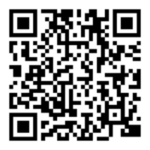When it comes to making a home in a new country, few things feel as good as finding a permanent place to live. But like many of life’s logistics, the rules, regulations and rights of the rental market vary by country. Whether you’re on the hunt for a rental house or apartment, or have made yourself at home in one, here are a few things to keep in mind.
Laws and regulations
Familiarize yourself with the rules and regulations of the area you intend to rent in, keeping in mind that they will likely vary by city. In order to protect yourself and your family, be sure to learn about tenant rights, landlord responsibilities, eviction procedures and any rent control laws that may apply.
Tenant rights
One of the most important things you can research are your rights as a renter. Spend a little time becoming familiar with local tenant rights in your new area, including rights related to repairs, privacy and the eviction process. Be sure you know where to seek legal assistance, or if there are tenant advocacy services available, should anything go wrong.
The rental market
Before you start looking for a place to live, research the various areas, including typical rent prices, popular neighborhoods, rental trends and additional area information. This will help you make an informed decision about the best place for your family and your finances.
Application process
In the US, before securing a rental apartment or home, you’ll likely have to fill out an application. With this first step, you’ll likely have to show identification and proof of income, and it’s possible you’ll have to undergo a credit or background check. Applications often come with a fee as well, so keep this in mind when applying for rentals.
Lease agreement
This is the contract you’ll sign when you find your rental home, and will likely include a move-in date, a rent amount, a monthly payment date, security deposit, maintenance responsibilities, additional fees and clauses and more. Be sure to carefully review this before you sign it so the terms of your lease are completely clear, and consider getting an attorney to review it.
Security deposit
Often, a home rental requires a security deposit, which is a substantial amount of money that you pay up front to rent your place. It’s a guarantee that you will agree to the terms of the lease agreement, and you’re entitled to get it back when you move out — provided you don’t break any terms of the contract. On the flip side, your landlord can pull from this deposit for any damages or unpaid rent.
Tenant insurance
While it’s an added expense, rental insurance is affordable, and protects your personal belongings in case of fire, theft or other unexpected catastrophes. More importantly, it’s a monthly expense that provides peace of mind in case anything happens.
Landlord communication
Communication with your landlord could make a huge difference when it comes to renewing your lease or getting your security deposit back. Report any maintenance issues promptly, make sure you follow the terms of the rental agreement and meet all requirements of payment and the care of your home.
Utilities and services
An important distinction in the rental agreement — which bills are covered by the landlord or rental company, and which ones you are responsible for. Know who is in charge of paying fees for electricity, water, gas, trash collection, internet and cable before signing on the dotted line.
Being informed about your rights and your responsibilities could be the difference between a positive rental experience and one that has you moving out before you’re ready. Do a little research, read contracts carefully and follow the agreement and you will have a better chance of making your rental home a long-term place to live.
DISCLAIMER – This content is for informational purposes only. Pangea and its affiliates do not provide legal, financial, investment or tax advice.




